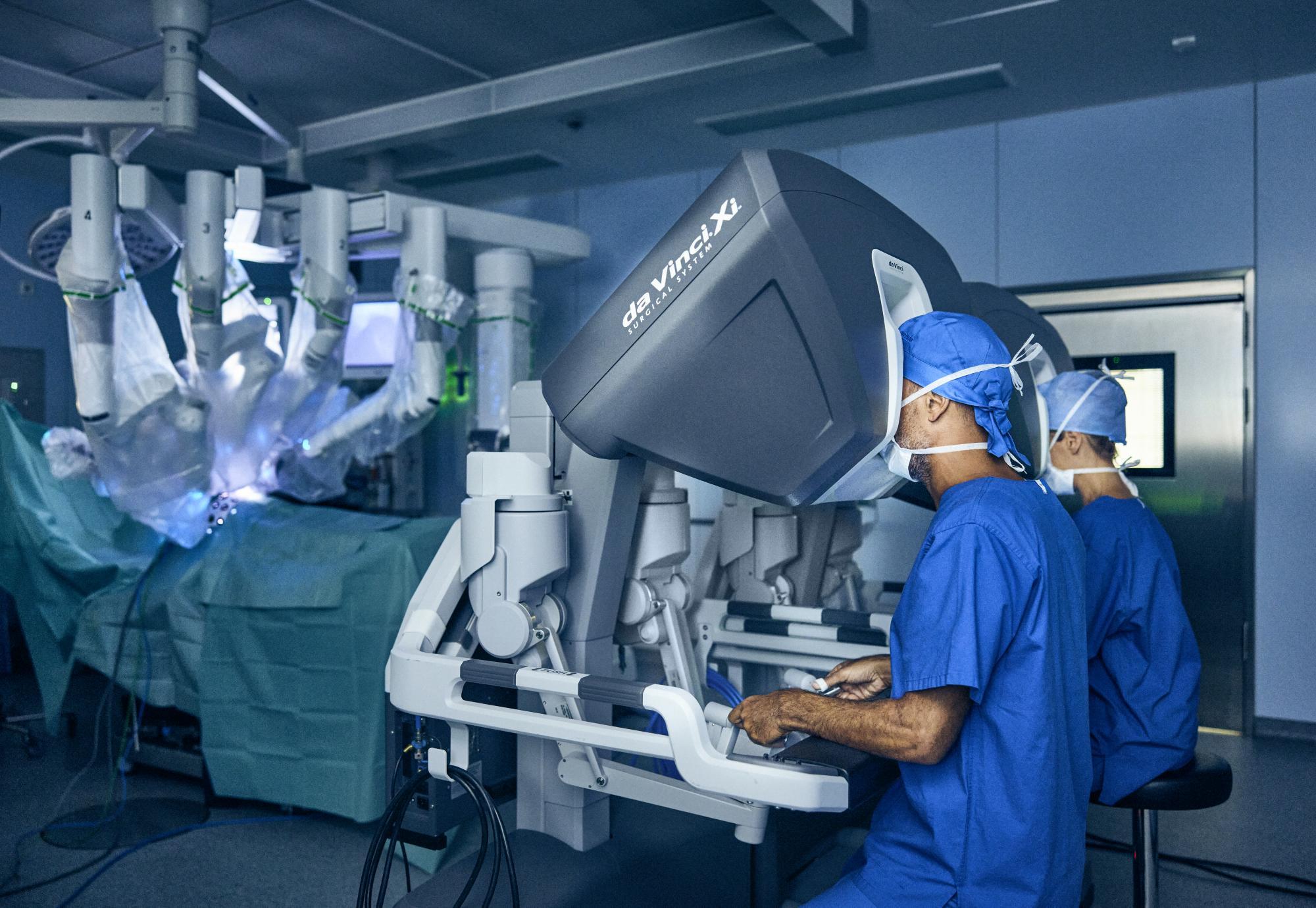Clinicians across the country are working tirelessly to respond to the unprecedented pressures currently facing the NHS. We hear, read and live this first-hand every single day. To help tackle a waiting list currently standing at more than 7.5 million patients, it is crucial that we harness technology to support both better patient outcomes and sustainable productivity improvements for the system.
I’ve been a consultant surgeon in Portsmouth for nearly 16 years. During this time, few technological advancements have been as transformative for our work than robotic-assisted surgery (RAS). Since 2012, we’ve gradually grown our fleet of da Vinci surgical systems to four, evolving our programme over the years to expand patient access across multiple specialities, and crucially to generate robust clinical evidence which demonstrates the positive impact that this technology is having on our patients.
Watching our RAS programme evolve and seeing the impact this has had on patients has been extraordinary. We introduced our first da Vinci systems in our main theatres, initially for cancer procedures, and then expanded to five additional clinical specialties, including complex benign surgery and emergency surgery. Most recently, we were delighted to launch the UK’s first ever robotic-assisted day case surgery programme, where we’ve been able to perform more than 400 day case surgeries on a dedicated da Vinci system, providing surgeons with enhanced visualisation, dexterity and precision.
Nationally, less than 10% of emergency surgeries use minimally invasive surgery (MIS), which includes RAS and other types of surgery. However, at Portsmouth, as we've seen both a rise in younger patients diagnosed with cancer and a rise in diverticular disease across all ages leading to more emergency surgeries, and therefore we've started to use MIS in more than 70% of these cases.
The benefits of this approach are clear: my own data shows that patients who undergo RAS spend fewer days in hospital, experience fewer complications, and are half as likely to require a readmission to hospital when compared with laprascopic surgery. We have also shown that there has been a significant improvement in overall survival for cancer patients at 5 years with the use of RAS in our cohort.
Supporting the wider uptake of this technology across the NHS would likely offer improved patient care, in turn enabling a productivity boost to hospitals across the country responding to rising patient demand.
Delivering cost-efficiencies
Strengthening productivity is not the only goal. We also need to show how a successful RAS programme can bring economic benefits to our hospitals and the NHS at large. RAS is infact helping to improve value for money, we’ve estimated that there is a potential downstream cost avoidance of more than £1,000 per patient, if certain procedures are performed using a da Vinci surgical system rather than laparoscopically.This is a direct consequence of improved patient outcomes, but also the impact that our programme has had on utilising healthcare resources effectively .
One example which always stands out to me is that of a local bus driver who we treated for a perforated bowel. He was able to return home four days after his robotic-assisted surgery and he was back in the driver’s seat of his bus after just six weeks, without any need to use a stoma bag during his recovery period.The clinical and economic impacts of this example are enormous – it avoided costs associated with a longer hospital stay, stoma appliances and patient training for stoma management, readmissions related to stomas and the potential need for a second procedure to reverse the stoma. Reducing the need for additional follow-up care and interventions helps improve productivity for care team members, and is another way that RAS can help to lower the total cost of healthcare for hospitals.
Increasing productivity and staffing efficiencies
Over the years, the evolution of our robotics programme has helped us to treat more patients and optimise our hospital processes. I often draw parallels with flying a plane when explaining this impact. For a RAS procedure, it is the high intensity ‘take-off’ and ‘landing’ phases that require the greatest input from the wider team. However, because the da Vinci system streamlines workflow and provides greater surgeon autonomy, the team’s time can be repurposed to help other operating teams whilst the surgeon is mid-operation – helping to improve flow throughout our hospitals and ultimately treat more patients. During certain procedures in my robotic theatre, this has enabled us to safely perform procedures with up to two fewer team members compared to a laparoscopic approach
Futureproofing the next generation
I’m particularly excited about the opportunities the robotic technology we use can provide for the next generation of surgeons across the country. By using a standardised training programme for surgical trainees, we can inspire and equip them with the skills needed to meet future healthcare needs.
Introducing the dual console da Vinci Xi system to our hospital’s Day Surgery Unit has had a significant impact on opportunities for our trainees to develop as a bedside or as a console surgeon. The second surgical console enables them to gain valuable experience by performing simpler procedures with the support of our consultants in preparation for training in more complex cases.
Inspiring the frontline
The profound impact that a RAS programme can have on patient care, staff morale and wellbeing is an often-overlooked benefit. With improved equity of access to RAS across the NHS, we can support an NHS workforce that is inspired, energised and motivated in the years ahead to improve patient care and productivity.
We recognise that our NHS is under a lot of pressure. However, through the empowerment of clinicians and care teams across the country to utilise technology we can deliver improved patient care, boost productivity, inspire our teams, and crucially lower the total cost to treat per patient episode.



















